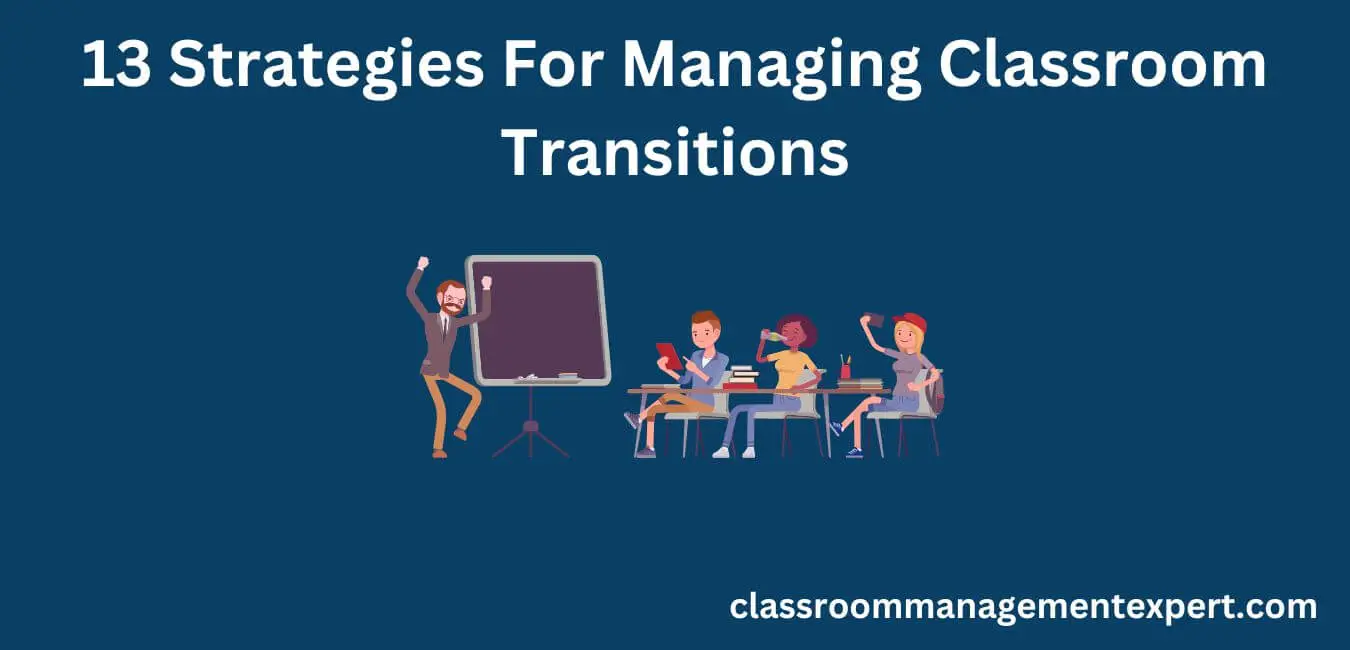There are many different types of students in any given classroom. Each student has their own strengths and weaknesses. In some cases, a teacher may have a student who is weaker than the others in the class. This can be difficult for both the student and the teacher.
There are a few strategies that can be used when working with weak students in the classroom. One approach is to provide more support and structure for these students. This could involve breaking down tasks into smaller parts, providing more cues and prompts, or adjusting the amount of time given to complete assignments. Additionally, teachers can try to create a more positive learning environment in which all students feel supported. This could involve giving specific feedback and encouragement, setting achievable goals, and praising effort as well as results.
In this article, we will discuss how to best handle these students in class. But before that, I will identify some of the reasons why some students are weak.
Why are some students weak?
1. Lack of focus and discipline:
There has been a lot of research done on why some students are weak academically. One of the main reasons for this is a lack of focus and discipline. This means that these students are not able to stay on task and tend to procrastinate. In some cases, this can lead to them not doing well in school at all.
There are a few reasons why this might be the case. For one thing, these students might not be used to working hard or may not have good study habits. Another reason could be that they are not interested in the subject they are studying or do not feel challenged by it. As a result, they lose focus and become easily distracted.
Finally, a lack of discipline can also be due to problems at home or with friends. These students might be dealing with too much stress or might be getting into trouble outside of school.
2. Lack of effort:
In order to be successful in school, students must put in the effort. Unfortunately, some students are weak academically because they do not try hard enough. There are a few reasons why a lack of effort causes students to be weak academically.
First, when students do not try hard, they fall behind in their studies. This makes it difficult for them to catch up and learn the material. Second, when students do not try hard, they often get lower grades. This can lead to them being discouraged from learning and doing well in school. Finally, when students do not try hard, they miss out on important skills and knowledge that could help them later in life.
All of these reasons show why it is important for students to put in the effort and try their best in school.
Check here for more of our articles.
3. Poor home environment
The home environment is one of the most important factors that affect students’ academic performance. It has been proven that a weak home environment can cause students to be weak academically. There are several reasons why a poor home environment can lead to students’ underperformance in school.
One reason is that when students live in a chaotic and unstable home environment, it can be very difficult for them to focus on their studies. Their minds are constantly occupied with worrying about their family’s well-being, and this prevents them from being able to concentrate on their schoolwork.
Another reason is that when families are going through tough times financially, it puts a lot of stress on the children. This stress can also interfere with their ability to focus in school and get good grades.
4. Limited exposure to learning opportunities
One of the key reasons why students are weak academically is because they have limited exposure to learning opportunities in the classroom. When teachers focus on the strong students and neglect the weaker ones, it creates a gap that is very difficult to overcome. This is because the weaker students are not getting the attention they need and they are not exposed to the same level of instruction as their peers.
In addition, when teachers give too much help to the stronger students, it actually hurts the weaker ones. They begin to feel inferior and this can lead to low self-esteem and a lack of confidence. It is important for teachers to be aware of this issue and make sure that all students have an opportunity to learn.
5. Poor Study Habits
Students who have poor study habits often find themselves struggling academically. This is because they are not able to retain information as well as those who have good study habits. There are several reasons why this is the case.
One reason is that students who don’t study well tend to be more distracted. They are more likely to be checking their phones or doing other activities instead of focusing on their studies. This can lead to them not learning the material as well as they should.
Another reason is that poor study habits can lead to a lack of organization. When you aren’t organized, it can be difficult to keep track of what you need to do and when you need to do it. This can also lead to you not being able to learn the material as well as you should.
Finally, students who don’t study well often find themselves stressed out.
6. Lack of interest
One of the main reasons students are weak academically is because they lose interest in the subject matter. This lack of interest can be caused by many factors, but one of the most common reasons is boredom. When students are bored, they often do not try their best because they find the material uninteresting. In addition, this lack of effort can also lead to a lack of focus, which can further hinder academic performance.
There are several reasons why students become bored with schoolwork. One reason is that some students are simply not interested in the subject matter. Another reason is that some students find schoolwork to be repetitive and unchallenging. And finally, some students feel that school is not relevant to their lives or their future careers.
It is important to note that there are many factors that contribute to a student’s academic success.
7. Difficulty with the material
Difficulty with the material is one of the main reasons students are weak academically. The material can be too hard or complex for students to understand, which makes it difficult for them to learn and retain the information. Additionally, if a student is struggling with the material, it can be very frustrating and discouraging, which can lead to them losing interest in school altogether.
There are many factors that contribute to difficulty with the material, including the level of instruction, the complexity of the subject matter, and the way in which information is presented. Sometimes, students are simply not ready for certain materials and need more time to develop their skills before moving on. However, if a student is consistently struggling with coursework, there may be a deeper problem that requires intervention.
8. Anxiety and Stress
When students are anxious and stressed, they often have trouble concentrating in class and completing their schoolwork. This can lead to weaker grades and lower academic achievement. There are several reasons why anxiety and stress can cause students to be weak academically.
Firstly, when students are anxious or stressed, they may have trouble focusing on their schoolwork. This can make it difficult for them to learn and retain information. In addition, when students are anxious or stressed, they may be more likely to make mistakes while completing their work. This can lead to lower grades and less success in school.
Finally, when students are anxious or stressed, they may be less likely to participate in class discussions and activities. This can limit their learning opportunities and lead to lower grades.
What to Do About the Weak Students in the Classroom?
1. Encourage Them
Many students who are struggling in school are labeled as “weak”. Some teachers might have the perception that these students can not be helped and should just be given up on. However, there are many reasons why you should encourage these students to succeed.
First of all, it is unfair to simply write these students off. They deserve a chance to improve and show what they can do. Secondly, supporting these kids can have a ripple effect on the rest of the class. When weaker students see others working hard and succeeding, it will motivate them to try harder too.
Finally, helping struggling students can actually make your class easier to teach. These kids need more attention and help than other students, so if you focus on them, the rest of the class will be able to coast along a bit more.
2. Don’t Give Up on Them
It can be easy to give up on students who are struggling academically. However, giving up is not the best solution for either the student or the teacher. There are several reasons why you should not give up on weak students in your classroom.
First, it is important to remember that all students can learn if they are given the right tools and support. Just because a student is struggling now does not mean that he or she will continue to struggle in the future. Often, all a student needs is some extra help and encouragement from the teacher to start making progress.
Second, giving up on students can actually have a negative impact on their academic performance. When a student feels like he or she is no longer supported or valued in class, it can be very demoralizing and lead to further academic struggles.
Want some help on how to manage chronic complainers in your classroom, check here.
3. Be Supportive
As a teacher, you should be supportive of weak students in your classroom. It’s important to remember that all students are different and learn in different ways. Just because a student is weaker in one subject doesn’t mean they’re not smart or talented in other areas.
There are many reasons why you should be supportive of weak students in your classroom. For one, it will help them feel more confident and motivated to learn. When students feel supported by their teacher, they’re more likely to try their best and improve their skills.
Another reason to be supportive is that it can help close the achievement gap between weaker and stronger students. By providing extra support and encouragement, weaker students can catch up to their classmates and eventually achieve the same level of success.
Lastly, it’s simply the right thing to do. When you’re a good teacher, you want to make sure that your students succeed. If they have a hard time learning and succeeding in school, you want to help them out as much as possible so that they can be successful too.
4. Challenge Them!
In a perfect world, all the students in your classroom would be academically strong and motivated. However, in the real world, this is not always the case. You may have students who are struggling to keep up with the rest of the class or who are not as motivated to learn. As a teacher, it is important to challenge these students with interesting and engaging activities.
There are many reasons why you should challenge weak students in your classroom. First of all, it is important for them to feel like they are part of the group. If they feel like they are being left behind, they may become discouraged and give up on school altogether. Secondly, challenging students helps them to learn new material and improve their academic skills. Finally, it is important for teachers to differentiate instruction in order to meet the needs of all their students.
5. Give them feedback.
In order to help weak students thrive in the classroom, it is important that teachers give feedback to weak students. Although this may seem like common sense, there are a few reasons why it is especially important to give feedback to weaker students.
First, when a student knows that they are struggling in a class, they often feel frustrated and embarrassed. Giving them positive feedback can help boost their confidence and make them feel more successful in the class.
Additionally, weak students typically benefit more from feedback than strong students. This is because they are still learning the material and need more guidance than those who have already mastered it.
Finally, when teachers provide feedback to weak students, they are helping to create better learners overall. These students will learn how to take criticism and use it to improve their work; thus, setting them up for future success.
6. Reward them
Rewarding students is a way to motivate them to continue working hard in class. For weak students, it can be especially motivating to be rewarded for their efforts. There are many reasons why you should reward weak students in your classroom.
First, rewarding them can help boost their confidence. When they succeed, even in small ways, it makes them feel good about themselves and encourages them to keep trying. This is important because, often, weak students lack self-confidence and need a little extra encouragement to keep going.
Second, rewarding them can help improve their skills. By giving them positive feedback and acknowledging their achievements, you let them know that you appreciate the effort they’re putting in and that you want them to continue working hard. This type of positive reinforcement helps students learn and grow more effectively.
Finally, rewarding weak students can help keep them on track.
7. Establish rules and expectations.
Establishing rules and expectations for weak students is important for many reasons. First, it creates a level playing field for all students in the classroom. This is important because it allows weaker students to have the same opportunity to learn as their more gifted peers.
Additionally, by establishing rules and expectations, you are sending a message to your students that you are serious about academics and that you expect them to perform at a high level. Finally, rules and expectations provide a framework for instruction and help teachers ensure that all students are being given the opportunity to succeed.
8. Help them find their strengths.
It can be difficult to help weak students find their strengths in the classroom. You may be wondering why you should even bother. After all, these students are likely to struggle no matter what you do. However, by helping them find their strengths, you can make learning easier for them and improve their chances of success.
One reason to focus on strengths is that everyone has them. Even struggling students have abilities and talents that can be nurtured and developed. By identifying and building on these strengths, you can help students feel good about themselves and more confident in their ability to learn.
Another reason to focus on strengths is that it makes learning more enjoyable for students. When they are doing something they are good at, it is motivating and engaging. This can lead to increased effort and a better attitude towards school in general.
9. Celebrate their accomplishments.
As a teacher, you should celebrate the accomplishments of your weak students. These students have faced many challenges in their lives, and they have worked hard to overcome them. They may not be the best students in your class, but they are still capable of achieving great things.
Your weak students have probably faced a lot of discrimination in their lives. People have often told them that they are not good enough and that they will never be successful. But you can show them that they are wrong. By celebrating their accomplishments, you can help them to build self-confidence and believe in themselves.
Your weak students may also be dealing with poverty or other social issues. But by celebrating their accomplishments, you can show them that they are valuable members of society. You can also help them develop skills that will be useful in the future.
10. Help them set goals and work towards them.
Helping a student set goals and work towards them is important in any classroom, but it is especially important for weak students. A weak student is often one who has difficulty with schoolwork and may not have the same academic ability as their peers. This can be frustrating for the student and can lead to them feeling discouraged. It is important to help these students set goals and work towards them in your classroom.
One way to do this is by setting realistic goals for the student. Help them break down their goal into smaller steps that they can accomplish easily. This will help them feel more successful, and they will be more likely to continue working towards their goal. You can also provide encouragement and support along the way.
It is important to remember that every student is different, so don’t expect all weak students to respond in the same way.
11. Understand their weaknesses.
It is important for any teacher to understand the weaknesses of their students. This understanding can help teachers to better help those students in their class. For example, a student who struggles with math may need more practice and instruction on basic concepts than a student who does not struggle with math. A student who is shy may need more encouragement from the teacher than a student who is outgoing.
There are many reasons why you should understand the weaknesses of your weak students. First, by understanding their weaknesses, you can provide them with the extra support they need to be successful in your class. You can give them specific instruction on what they are struggling with and provide them with additional practice opportunities. Additionally, by knowing what your students’ weaknesses are, you can create lessons and activities that are tailored to meet the needs of all of your students.
12. Adjust your teaching methods.
It is important for all students to feel successful in the classroom. However, not all students come to class with the same skills and knowledge. This can be especially true for students who are new to English or are struggling academically. As a teacher, it is important to adjust your teaching methods to help these students succeed.
One way to adjust your teaching methods is to differentiate instruction. This means that you will teach different materials and at different speeds depending on each student’s needs. You can also modify assignments so that all students can be successful. If a student is struggling with a particular topic, offer them additional support in class or assign them an alternative homework task.
Another way to adjust your teaching methods is to provide more opportunities for practice and feedback. If a student does not understand a concept, give them the opportunity to practice it again and again until they get it right.
13. Providing extra support in school.
There are many reasons why you should provide extra support in school to help weak students in your class. For one, these students may have difficulty keeping up with the material and can benefit from additional assistance.
Additionally, weak students can often feel discouraged and become disengaged from learning when they struggle in a classroom setting. Providing targeted support can help these students feel more confident and motivated, which can ultimately lead to improved academic performance.
Finally, helping weak students in school can also benefit the rest of the class by creating a more supportive and inclusive environment. When all students feel supported and empowered to succeed, everyone benefits.
14. Encourage parents to get involved.
There are a few reasons why you should encourage parents to get involved to help weak students in your class. First, parents know their children best and can often provide valuable insights into what their child is struggling with and how they might be able to help. Second, when parents are involved in their child’s education, it shows the child that they are important and that the school cares about them. This can help boost the child’s confidence and make them more likely to succeed in school.
Finally, working with parents to help their children can be a great way to build strong relationships with families and create a positive community around the school.
Conclusion
The discussion above reveals why some students are academically weak and provides some practical tips to help you manage the weak students in your class. If you implement the strategies recommended here, you will see an improvement in your weak students in the near future.



















